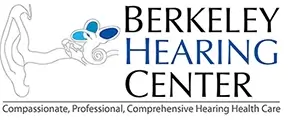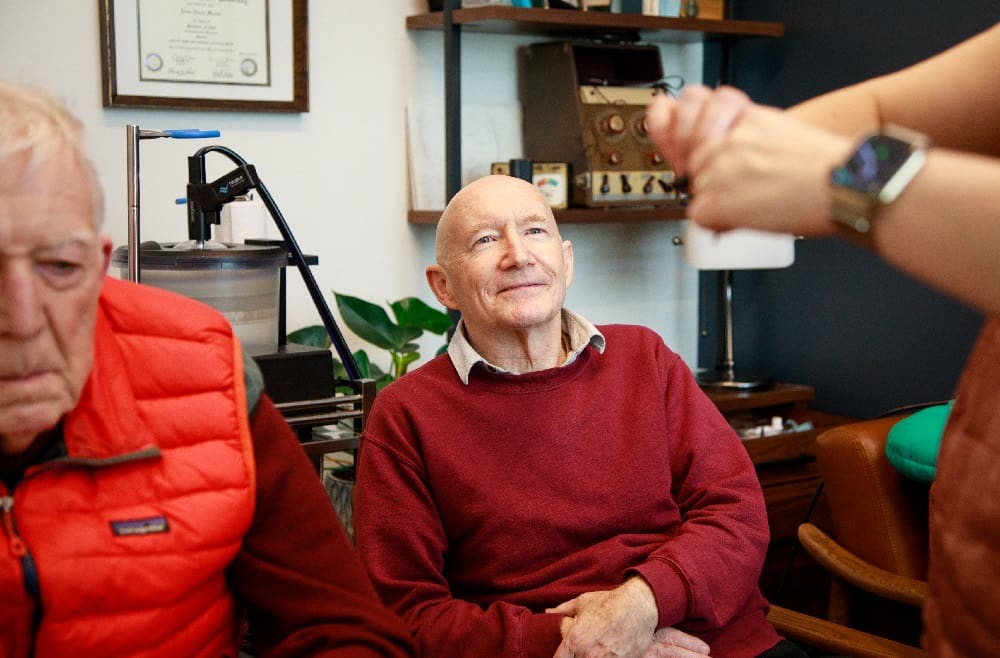2024-06-30
Jonathan Lipschutz Audiologist, M.S., F-AAA, Co-Owner
As much as I want to be able to care for every patient who comes through our door, sometimes they have hearing loss so severe, hearing aids are no longer effective enough. Those readers who enjoy/learn from my contributions to Berkeley Hills Living (thank you!) already know, in the day-to-day, hearing aids are just an aid. They cannot fix or bypass the problem. Long term though, they are the only (non-surgical) treatment. They help maintain auditory coding/processing and reduce what I’ll call ‘brain strain’. How hard your brain is working to understand speech. That’s why it’s so important to ‘amplify’ hearing loss as early as possible!
But sometimes the hearing loss is too significant, and the electrical information the cochlea is sending to the brain is too distorted to be ‘understood’. Thankfully, because of cochlear implants (CI), we don’t have to consign everyone to a world of silence.
In researching for this article, I didn’t realize how far back I would be taken. The first known instance of someone purposefully stimulating the inner ear with an electrical current goes all the way back to the very end of the 18th century! The famous Italian physicist and chemist, Alessandro Volta, credited as the inventor of the battery and in whose name the electrical unit of measure (volts) is derived, presented the results of his experiments at a meeting of the Royal Society of London in June 1800.
William House, an otologist from Los Angeles, and John Doyle, a neurosurgeon, are credited as inventors of the modern CI, a single channel device (the “3M/House” device), first implanted in 1972. Meanwhile, research on opposite sides of the world (Melbourne, Australia and Innsbruck, Austria) led to the introduction of the first multichannel CI systems back in the mid-80’s.
How does a CI help when hearing aids can’t? Hearing aids depend on the entire auditory system. CIs stimulate the auditory nerve directly, bypassing the damaged auditory sensory coding cells (stereocilia), providing the brain with more coherent information.
So if CIs bypass those ‘deficient’ cells, why doesn't everybody get CIs? While CIs work better for people for whom hearing aids can’t help, the quality of improvement is limited. Therefore, there are audiological candidacy guidelines that determine when a person is likely to benefit more from a CI than hearing aids. We counsel patients about the “60/60 rule”, 60+ decibels (dBHL) of hearing loss and <60% correct on unaided speech understanding tests. Once a person is implanted, they can no longer go back to using a hearing aid in that ear, so we have to make sure hearing aids aren’t going to be more effective.
Getting a CI is no small thing, but one that is usually transformational for the patient. There’s a fairly long evaluation and preparation process. After implantation there’s typically a months-long process of programming or “mapping” the implant to the patient’s subjective perceptions of sound, along with auditory rehabilitation in order to learn how to ‘hear’ again.
Surprisingly, the actual surgery is typically done on an out-patient basis, with the person going home the same day. Again, getting a CI is no small thing.
But I’m so thankful that there’s a really good option I can offer to people looking to me for help, but whose needs are beyond the care I can provide!
Please continue to show you love your community by supporting our local businesses and remembering the humanity of those around you.
https://berkeleyhearing.com/wp-content/uploads/2024/11/Discover-the-Journey-to-Better-Hearing-Learn-More-About-Cochlear-Implants-Today.jpg
Jonathan Lipschutz Audiologist, M.S., F-AAA, Co-Owner






